Alcoholism is a serious disease that affects millions of people around the world. People struggling with alcohol addiction often find it difficult to kick the habit. They may feel discouraged when they relapse multiple times. However, it’s possible to overcome an addiction to alcohol if you have the proper resources and support system in place.
Sobriety is not a term that is often associated with joy or accomplishment, but it can be. After sixty days without alcohol, you can gain insight and appreciation for how beneficial sobriety can be. Reaching the milestone of sixty days sober marks an impressive achievement in your recovery journey and brings numerous mental and physical changes.
Benefits After 60 Days Without Alcohol
Two months alcohol-free transforms lives, users consistently report sharper focus, surging energy, and a profound sense of renewed purpose as the body and brain begin healing from years of strain.
Studies confirm measurable recovery in liver function, brain structure, and overall vitality during this period.
Physical transformations:
- Better sleep and sustained energy: Alcohol disrupts REM cycles, but after 60 days, deeper restorative sleep becomes the norm, often reducing daytime fatigue by 30-50%. People wake feeling refreshed and ready for the day, with consistent energy levels that last from morning through evening.
- Weight loss and metabolism boost: Each gram of alcohol packs 7 empty calories, so cutting it out typically leads to 5-10 pounds of natural weight loss. Blood pressure often drops 5-10 points, easing risks for diabetes and heart issues, while digestion stabilizes to eliminate chronic bloating and discomfort.
- Chronic disease protection: Heavy drinking accelerates liver fat buildup, halting early alcohol-related liver disease. Skin regains better hydration for a healthy glow, immunity strengthens against infections, and coordination improves to cut accident risks in half.
Mental and emotional gains:
- Clarity and mood lift: Gray matter volume in memory and focus areas increases, sharpening concentration and recall. Anxiety and depression symptoms often fall as natural dopamine production stabilizes, replacing foggy thinking with crisp mental sharpness.
- Confidence surge: Building self-discipline through daily sober choices strengthens habit loops, making stress management intuitive without alcohol crutches. Productivity rises noticeably as decisions feel purposeful and effortless.
- Stronger bonds: Without alcohol haze, genuine presence fosters deeper family and friend connections. Clear judgment supports safer choices, dramatically reducing social isolation and rebuilding trust in relationships.
These changes provide a strong foundation but work best alongside professional care for alcohol use disorder (AUD). Track your journey with our sober days counter.
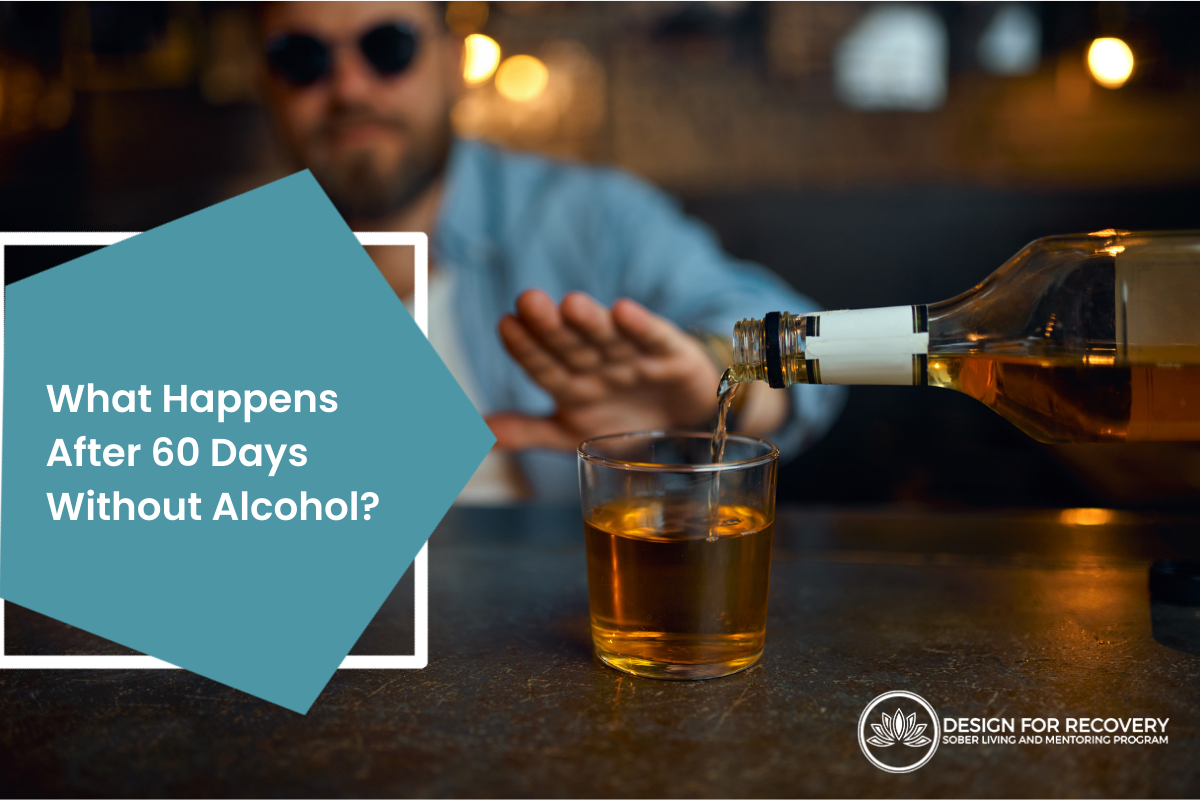
How Does the Body Feel After 60 Days of Sobriety?
It’s common to experience physical and emotional changes after the first 60 days of sobriety when you’re alcohol-free. Almost all the withdrawals and difficult experiences have been overcome in the two months prior, so the time after this benchmark is renewal after quitting drinking.
Many people find that they experience more energy and improved sleep, as well as better physical digestion. Other than that, the body may feel an overall sense of comfort and balance. This can be attributed to a person’s hormonal system no longer constantly being thrown off balance by alcohol consumption.
As for emotional changes, many individuals find that their mood swings are more easily managed. They may also experience a greater feeling of contentment and self-compassion and an overall improvement in mental clarity.
While the body is far from having reached its peak health after just sixty days sober, many people have noticed improved physical health and better emotional regulation than when they drink alcohol. With continued sobriety, the body is sure to become more resilient and better able to withstand life’s challenges.
However, it’s important to remember that everyone experiences sobriety differently. As such, it’s recommended to speak with a licensed healthcare provider if you have any concerns or would like guidance in maintaining long-term sobriety. For those wondering is being sober worth it, the improvements in both physical and emotional health within just 60 days can be a compelling affirmation.
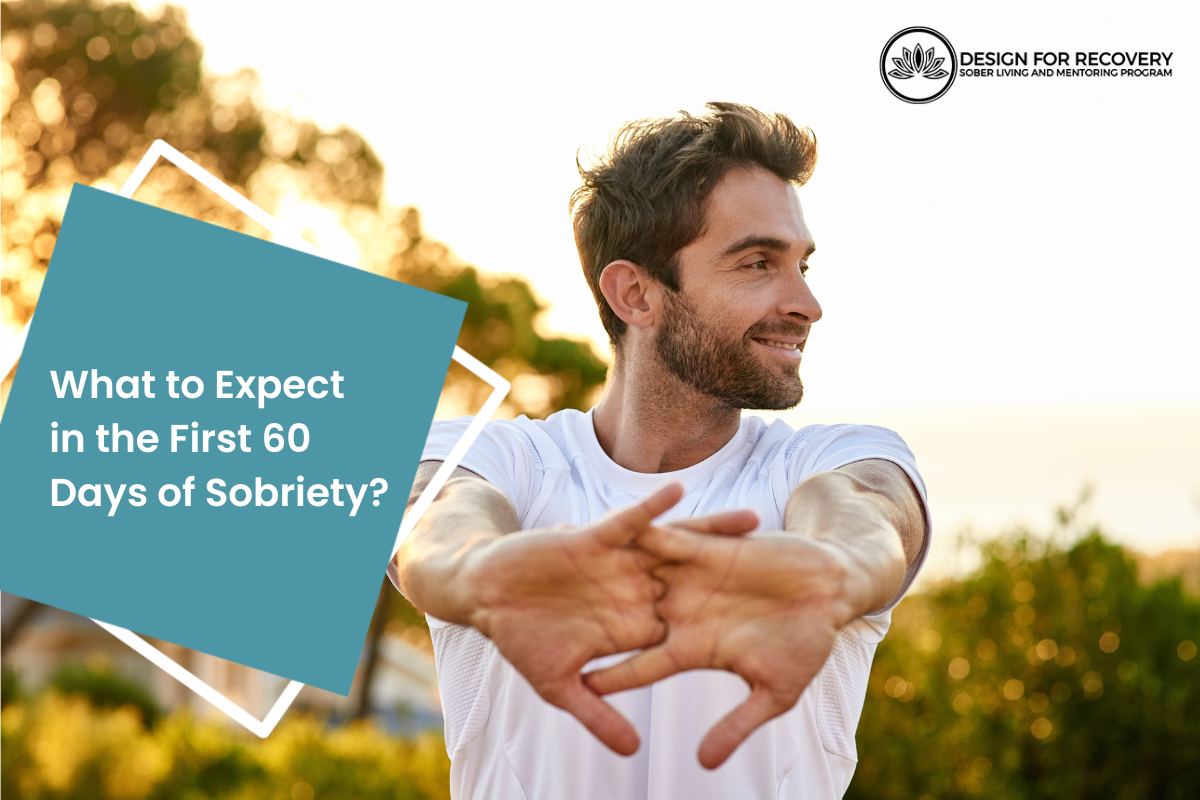
How Does the Brain Change After 60 Days of Being Sober?
Staying sober for 60 days is a great accomplishment that many people work hard to achieve – but what changes when someone goes through this period of abstinence? The brain undergoes some pretty remarkable shifts in structure and chemistry while we’re sober.
One of the most significant changes is an increase in gray matter volume. Gray matter consists of neuronal cell bodies, cognition’s “building blocks” – including memory formation and problem-solving skills. By abstaining from substances like alcohol, we can allow our brains to restructure these regions to create better neural pathways for cognitive function.
In addition to increasing gray matter volume, staying sober for 60 days can help restore natural dopamine production levels. Dopamine is a neurotransmitter that plays an important role in the reward and pleasure pathways of the brain – and when alcohol or other substances are introduced, it’s released in higher-than-normal amounts, leading to euphoric sensations.
Over time, this excess dopamine can cause us to become dependent on the substance, and staying sober for an extended period can help restore our natural dopamine levels. It also helps people who have mental health issues.
Finally, studies have shown that 60 days of sobriety can increase functional connectivity between different brain regions. This means that the communication pathways between neurons become stronger and more efficient – leading to improved overall cognitive functioning.
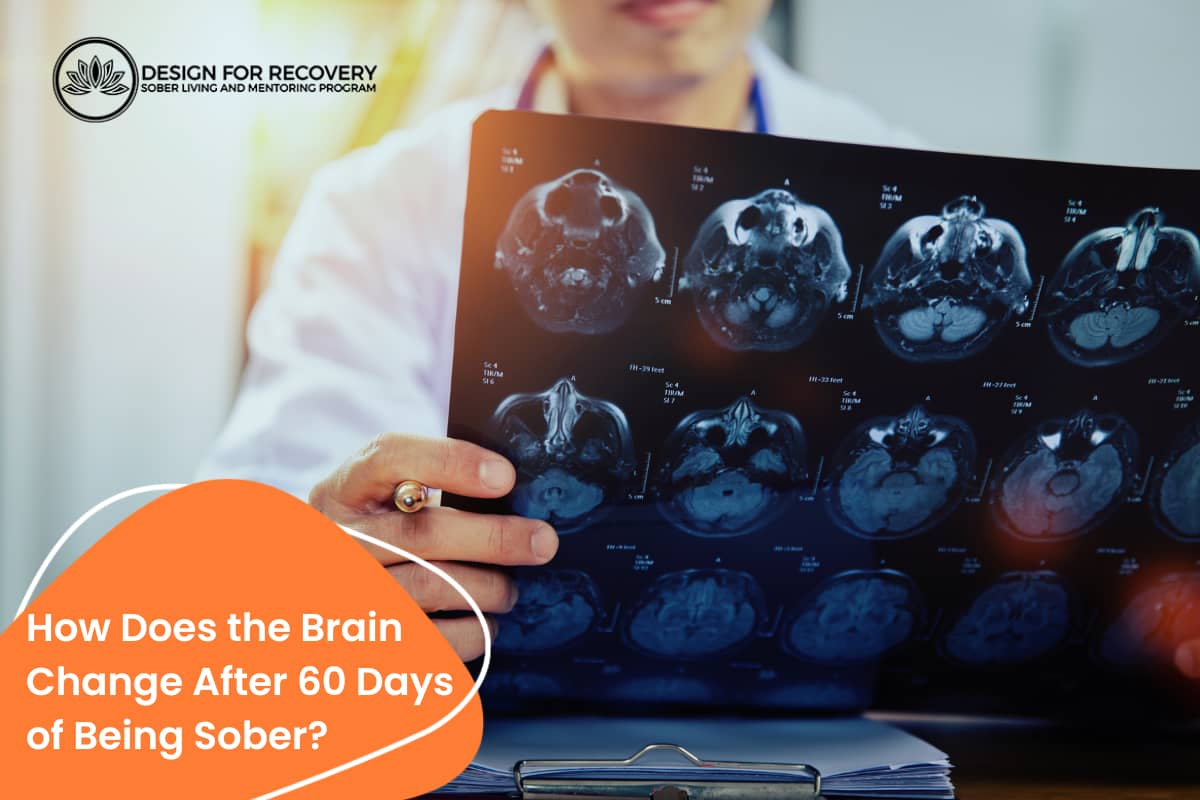
What are the Most Common Challenges in the First 60 Days of Sobriety?
Staying sober for 60 days is an incredible accomplishment – but unfortunately, it isn’t always easy. Many people face various challenges in the early stages of sobriety, which can make maintaining this new lifestyle difficult. Here is a breakdown of each:
Call Design for Recovery to Begin Your Healing Journey!
Reach out to our team to discuss sober living options and next steps toward a healthier routine.
Cravings
Cravings are one of the most common challenges that people face during the first 60 days of sobriety. This is because, during this period, your brain is still adjusting to its new structure and chemistry – and it can make you crave substances to return to its former state. These cravings can be strong, but it’s important to remember that they will pass with time.
Anxiety
Anxiety is also a common challenge during the first 60 days of sobriety. This is because, without substances to help regulate our emotions, we can become overwhelmed and anxious as we adjust to this new lifestyle. It’s important to remember that these feelings are normal, and reaching out for help is okay if you feel like the mental health challenges of a newly alcohol-free life are too much to handle.
How to Improve Your Chances of Success in Early Recovery from Addiction?
Sobriety is an admirable goal. In fact, for many people in recovery from alcohol and drug addiction, the first sixty days of sobriety are critical to long-term success. During this time, it’s important to establish a strong base and work on developing healthy habits that will help you stay sober longer. Here are some strategies to improve your chances of success.
Contact Design for Recovery Today!
Fill out our quick form to connect with a peer mentor and learn how our sober living community supports accountability, structure, and personal growth in recovery.
Develop a Supportive Network
Surrounding yourself with supportive family, friends, and peers can make a huge difference in early sobriety. If you don’t have people who are willing to support you, there are still options – such as joining a 12-step group or finding an addiction counselor that you feel comfortable with and trust.
Manage Stress & Develop Coping Skills
Stress is one of the most common triggers for relapse. Managing stress and developing healthy coping skills are essential in early recovery. Some strategies include mindfulness meditation, journaling, exercise, art therapy, or yoga. Participating in activities that bring joy and give your life purpose can also help.
Get Enough Sleep
Sleep is vital for maintaining good mental and physical health in recovery. Not getting enough sleep can increase your risk of relapse, so get at least 7 hours of quality sleep per night. If you have trouble sleeping, there are natural remedies such as melatonin or chamomile tea.
Watch Your Diet
Healthy eating habits are important in early sobriety. Eating foods that provide essential nutrients and energy can help protect your body from the effects of drug or alcohol abuse. Avoid processed and sugary foods and choose nutrient-rich options such as lean proteins, fresh fruits and vegetables, nuts, seeds, legumes, and whole grains.
These choices are particularly beneficial for those looking to recover from binge drinking, as they help restore balance and support overall well-being.
Find an Exercise Routine
Exercise can be a great way to stay healthy, manage stress, and reduce your risk of relapse. You don’t have to join a gym or run marathons – any physical activity you enjoy is beneficial. It could be anything from walking around the block to playing football.
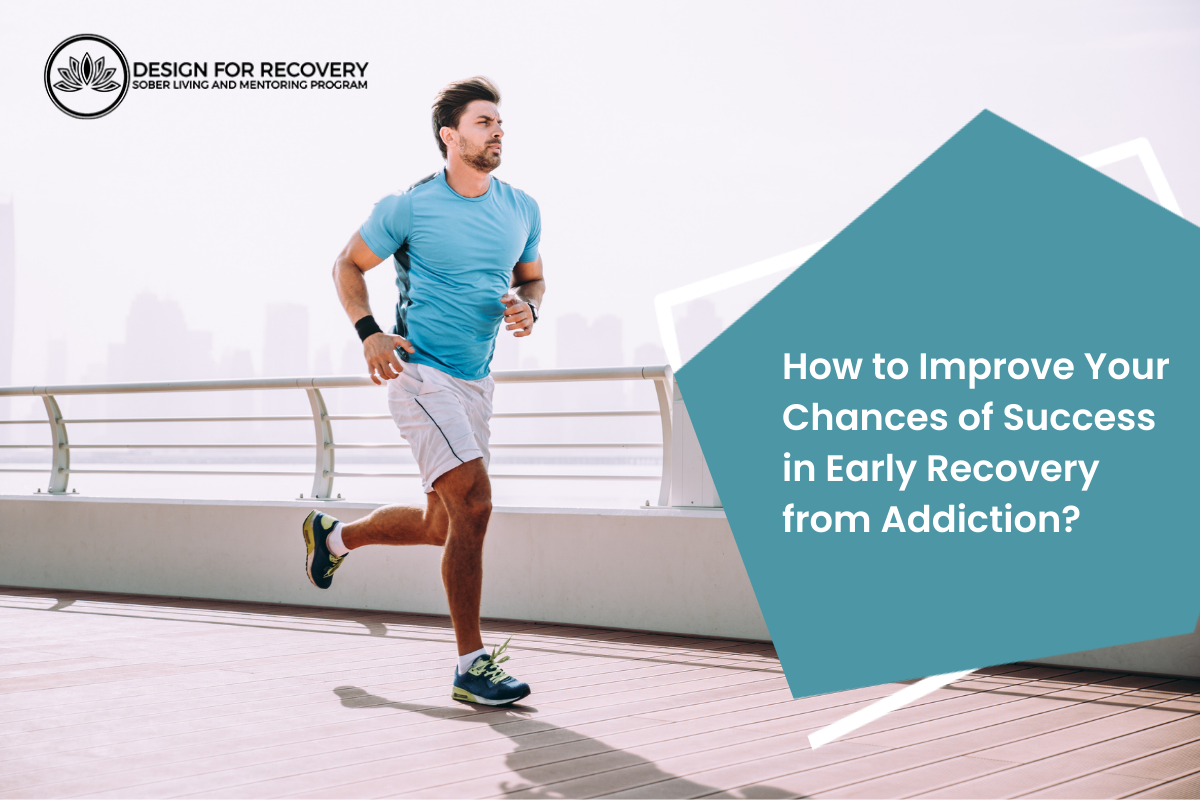
Getting the Help You Need
Many people find that committing to a period of sobriety can be incredibly beneficial for their mental and physical health. By taking a break from alcohol, you give your body a chance to heal and reset. For example, experiencing 30 days without alcohol can provide a clear perspective on the benefits of sobriety. Additionally, reaching the milestone of one year sober offers deeper insights into how sobriety can transform your life. It’s an opportunity to reevaluate your relationship with drinking and consider the positive changes that long-term sobriety can bring, as discussed in the journey towards your first year of sobriety.
Recognizing the signs to sober can be the first step towards understanding when it might be time to seek help and commit to this life-changing decision.
Design for Recovery provides sober living housing, but we also encourage connections to local rehab programs when appropriate. Our sober living team can discuss housing options and connect you with external recovery resources as needed. Contact us today at (424) 242-1130 to begin your journey toward recovery.
- Benefits After 60 Days Without Alcohol
- How Does the Body Feel After 60 Days of Sobriety?
- How Does the Brain Change After 60 Days of Being Sober?
- What are the Most Common Challenges in the First 60 Days of Sobriety?
- Cravings
- Anxiety
- Social Pressure
- How to Improve Your Chances of Success in Early Recovery from Addiction?
- Develop a Supportive Network
- Manage Stress & Develop Coping Skills
- Get Enough Sleep
- Watch Your Diet
- Find an Exercise Routine
- Getting the Help You Need
Begin Lasting Sobriety Now!
McCalley, D. M., Kaur, N., Wolf, J. P., Contreras, I. E., Book, S. W., Smith, J. P., & Hanlon, C. A. (2022). Medial Prefrontal Cortex Theta Burst Stimulation Improves Treatment Outcomes in Alcohol Use Disorder: A Double-Blind, Sham-Controlled Neuroimaging Study.Biological psychiatry global open science, 3(2), 301–310.
https://www.sciencedirect.com/science/article/pii/S2667174322000271Daviet, R., Aydogan, G., Jagannathan, K., Spilka, N., Koellinger, P. D., Kranzler, H. R., Nave, G., & Wetherill, R. R. (2022). Associations between alcohol consumption and gray and white matter volumes in the UK Biobank.Nature communications, 13(1), 1175.
https://www.nature.com/articles/s41467-022-28735-5Yao, X. I., Ni, M. Y., Cheung, F., Wu, J. T., Schooling, C. M., Leung, G. M., & Pang, H. (2019). Change in moderate alcohol consumption and quality of life: evidence from 2 population-based cohorts.CMAJ : Canadian Medical Association journal = journal de l’Association medicale canadienne, 191(27), E753–E760.
https://www.cmaj.ca/content/191/27/E753Goldman M. S. (1995). Recovery of Cognitive Functioning in Alcoholics: The Relationship to Treatment. Alcohol health and research world, 19(2), 148–154.
- https://www.ncbi.nlm.nih.gov/pmc/articles/PMC10140456/
- https://www.ncbi.nlm.nih.gov/pmc/articles/PMC6739059/
- https://www.ncbi.nlm.nih.gov/pmc/articles/PMC6875729/
- https://www.ncbi.nlm.nih.gov/pmc/articles/PMC8897479/




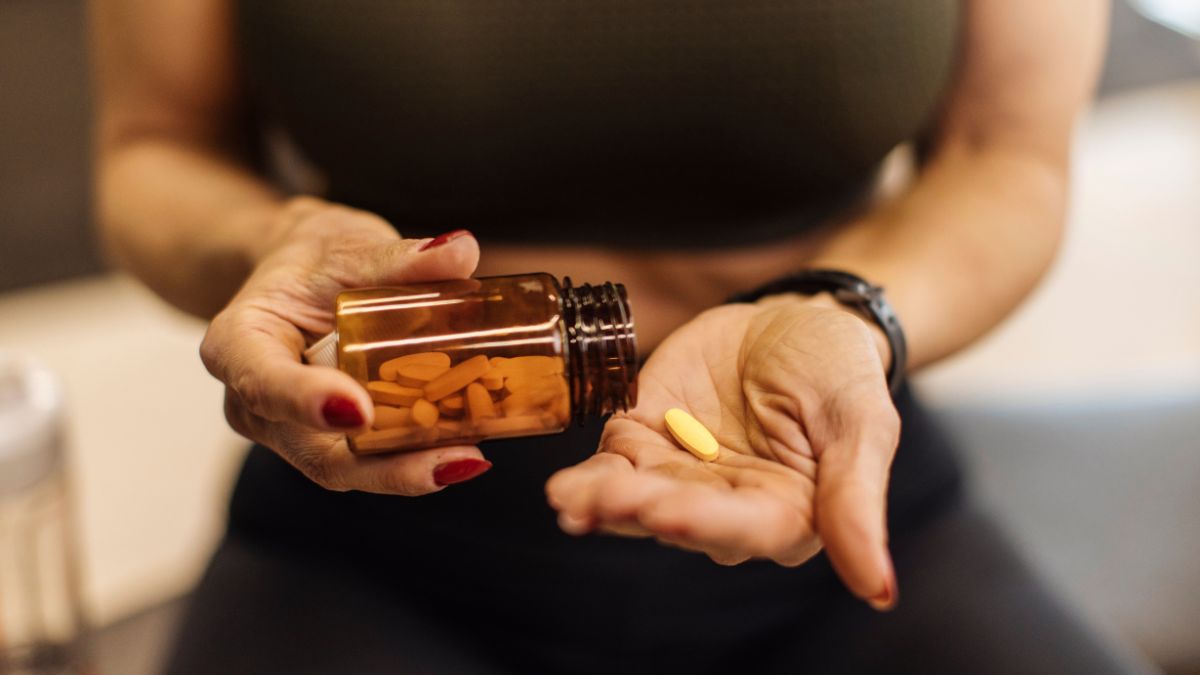
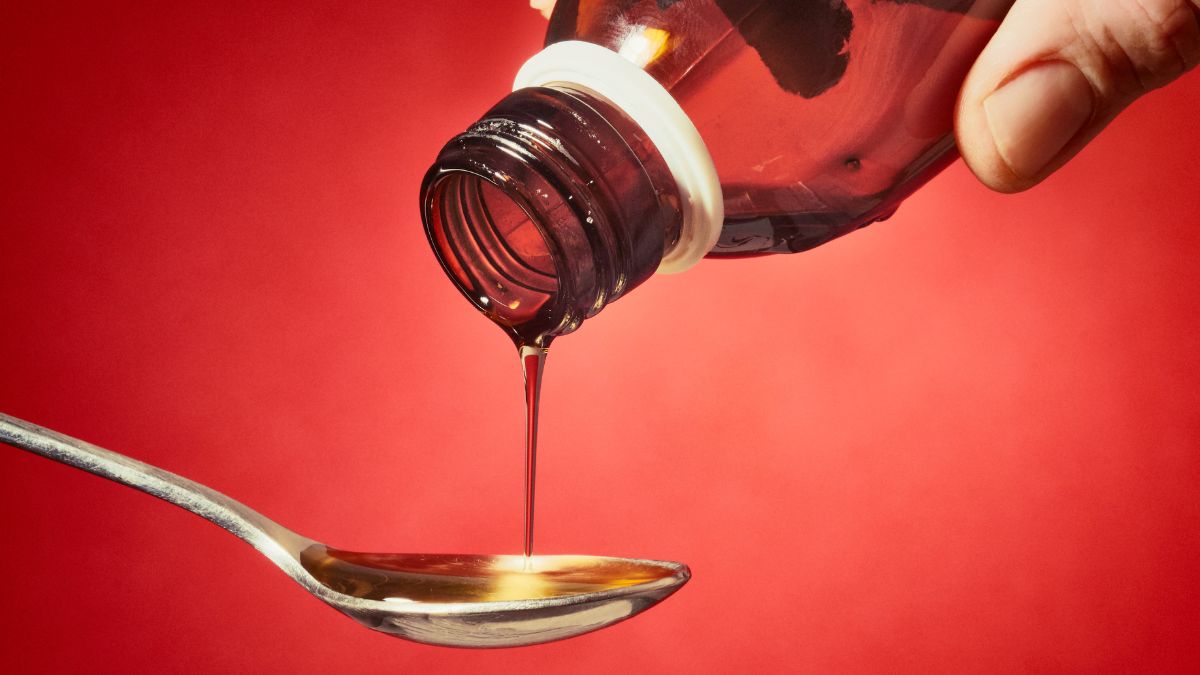
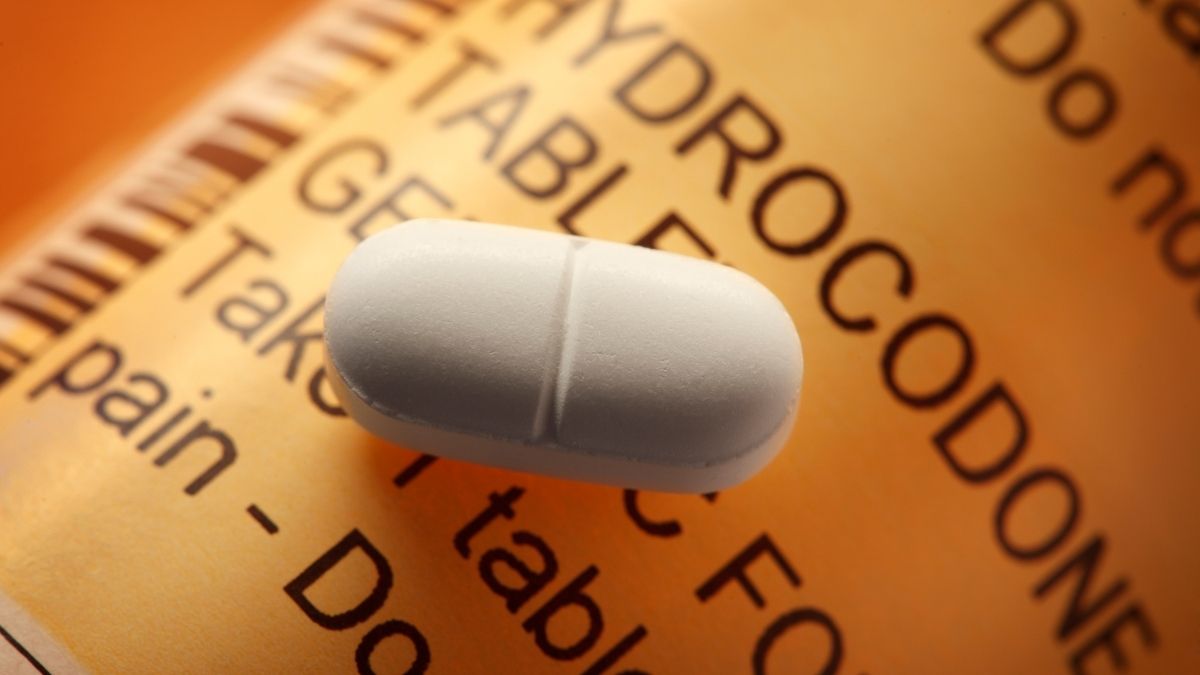
Social pressure is the last common challenge that many people face during the first 60 days of sobriety. This can be especially difficult because it often comes from our closest friends and family members still consuming substances. It’s important to remember that you don’t have to succumb to this pressure, and you should always prioritize your sobriety.
Staying sober for 60 days is a major accomplishment – and with the right knowledge and support, it can be done.
Emotional fluctuations, including mood swings and anxiety, are prevalent as individuals adapt to a life without alcohol. Another significant challenge is addressing co-occurring addictions, such as sex addiction & porn addiction, which can interfere with recovery.
By understanding how our brains change during this period of abstinence, we can better prepare ourselves for any challenges.